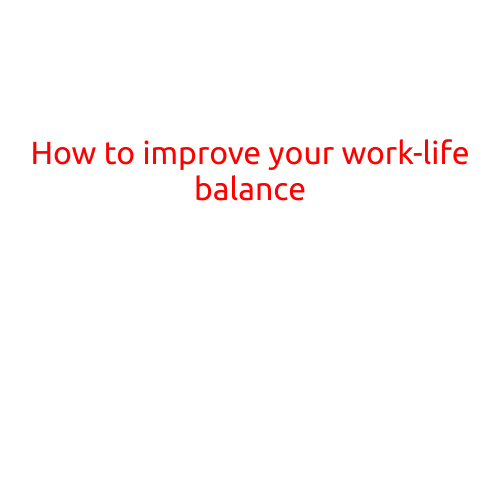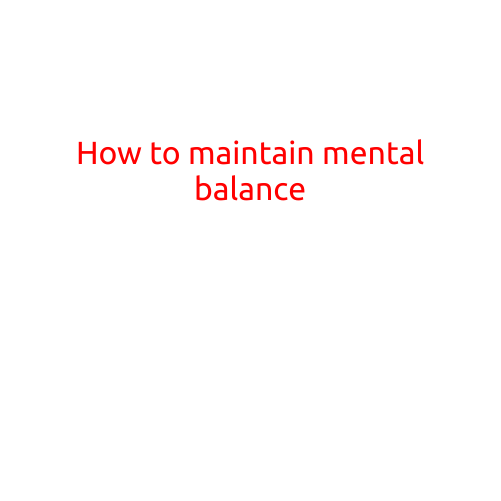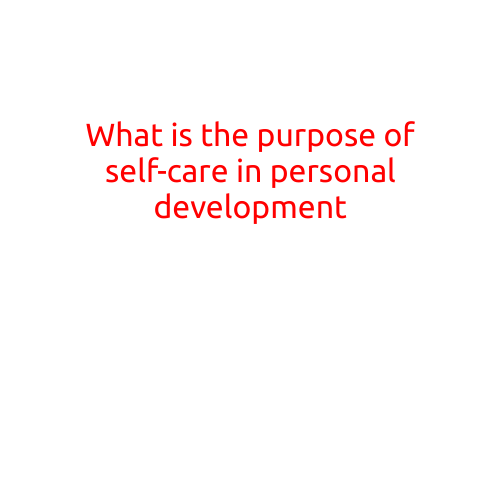
How to Improve Your Work-Life Balance
In today’s fast-paced world, it’s easy to get caught up in the demands of work and neglect our personal lives. However, neglecting our work-life balance can have serious consequences on our physical and mental health, relationships, and overall well-being. In this article, we’ll explore the importance of work-life balance and provide practical tips on how to achieve it.
Why Work-Life Balance Matters
Work-life balance is essential for maintaining a healthy and fulfilling life. When we prioritize our work over our personal life, we risk burnout, which can lead to:
- Decreased productivity and efficiency at work
- Strained relationships with family and friends
- A decline in physical and mental health
- Increased stress and anxiety
- A general sense of un happiness and dissatisfaction
On the other hand, achieving a good work-life balance can bring numerous benefits, including:
- Increased job satisfaction and engagement
- Improved physical and mental health
- Stronger relationships with family and friends
- More free time and relaxation
- A better overall quality of life
Practical Tips to Improve Your Work-Life Balance
So, how can you achieve a better work-life balance? Here are some practical tips to help you get started:
- Set Clear Boundaries
Establish clear boundaries between your work and personal life. Set specific working hours and avoid checking work emails or taking work calls during your personal time.
- Prioritize Self-Care
Make time for activities that bring you joy and relaxation, such as exercise, meditation, or hobbies. Prioritize your physical and mental health by getting enough sleep, eating healthy, and taking breaks.
- Learn to Say No
Don’t be afraid to say no to requests that are not aligned with your priorities or values. Set realistic goals and limits to avoid overcommitting and feeling overwhelmed.
- Schedule Personal Time
Schedule personal time in your calendar, just as you would any other important task. Use this time to relax, pursue hobbies, or spend time with loved ones.
- Outsource and Delegate
Outsource or delegate tasks that are not essential to your well-being or productivity. For example, if household chores are taking up too much of your time, consider hiring a cleaning service or delegating tasks to family members.
- Take Breaks
Take regular breaks throughout the day to recharge and refocus. Go for a walk, do some stretching, or practice mindfulness exercises.
- Communicate with Your Employer
Communicate with your employer about your needs and boundaries. Discuss flexible work arrangements, such as telecommuting or flexible hours, to improve your work-life balance.
- Disconnect from Technology
Avoid distractions and disconnect from technology during your personal time. Avoid checking work emails or social media, and focus on activities that bring you joy and fulfillment.
- Seek Support
Seek support from family, friends, or a mental health professional if you’re struggling to achieve a good work-life balance. Share your challenges and concerns with someone you trust to get advice and guidance.
Conclusion
Achieving a good work-life balance requires intentional effort and commitment. By setting clear boundaries, prioritizing self-care, and learning to say no, you can improve your work-life balance and lead a more fulfilling and satisfying life. Remember to prioritize your physical and mental health, and don’t be afraid to ask for help when you need it. By making small changes and adjustments to your daily routine, you can achieve a better balance between your work and personal life.





